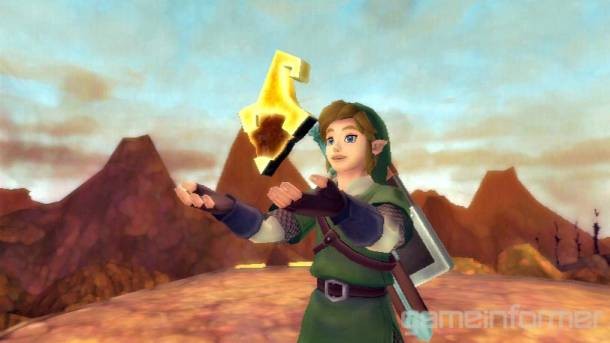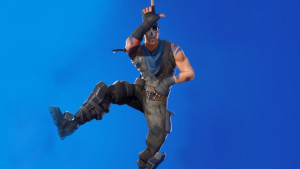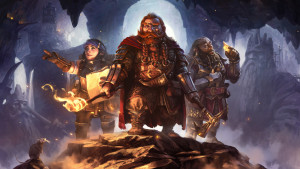Please support Game Informer. Print magazine subscriptions are less than $2 per issue
Eiji Aonuma And Koji Kondo On Voice Acting And Zelda's Future

A little over a month ago, I had an amazing opportunity to speak to Zelda producer Eiji Aonuma and Nintendo sound group manager Koji Kondo mere days after finishing playing and writing my review for The Legend of Zelda: Skyward Sword. I asked a bunch of questions that you'll be able to read about in the January issue of Game Informer, but I wanted to share a couple of the most interesting responses I received right now.
With the clarification that I'm not the type of person who strongly believes Zelda games need voice acting, Skyward Sword was the first in the series where I was struck with the thought that voice acting could have added to some of the characters and deeper emotional moments. Traditionally Nintendo has shied away from even entertaining the thought of voice acting in Zelda, but given the changes to the formula in this latest entry and the shift to HD on the Wii U, I asked Kondo and Aonuma if they felt like there's a place for voice acting in the series' future.
Kondo responded first with the fairly common answer as to why Nintendo has avoided adding voice acting to Zelda games up to this point:
"The most important thing about the Zelda series is that the player becomes Link. One of the challenges with full voice is that if we’re trying to convey the player’s emotion through Link, but you hear Link talking in somebody else’s voice, that creates a disconnect between you and the role that you’re taking on."
Aonuma jumped in at this point and clarified, "...if you create a game where everybody else in the game speaks but Link doesn’t, it emphasizes the fact that he is silent and draws even more attention to it." Interestingly, though, Aonuma was not completely opposed to the possibility of voice acting snaking its way into the series:
"Of course, this was the first time we went with fully orchestrated songs in the game, and we’ve seen what that can do to help bring the world alive and make the game that much more fun. We’re continually looking at ways that we can evolve the series. We’re not confident that we can find the right balance with full voice, so we’ll see."
Aonuma also joked, "Everyone would be speaking Hylian, so even if you heard them speak, you wouldn’t understand them."
At the end of the interview, I asked Aonuma to provide his general vision for the future of the Zelda series moving forward from Skyward Sword. His answer surprised me:
"I started working on the series not at the beginning but part-way through its history. I think because of that, early on I was more looking objectively at the series and how we could change small, individual elements within it, rather than looking at how the series should evolve. As time has passed – particularly in the last few years – I’ve started to think a lot more about how I can take the series and really make it my own Zelda and evolve it further. As Mr. Miyamoto has allowed me to take the reins on the Zelda series, ultimately that’s what I need to do. Perhaps some people will think it’s a little bit late for me to start thinking about that, but as time goes by, that’s becoming more of a theme in how I’m approaching the series."
I certainly know some gamers who would call it a little late, but it's exciting to see Aonuma and crew continuing to look more seriously at how to bring bigger changes to new games in the Zelda franchise. Let's hope that they can deliver as greatly as they did with Skyward Sword.
For my full Afterwords interview with Eiji Aonuma and Koji Kondo, be sure to check out the January issue of Game Informer in the coming weeks.










